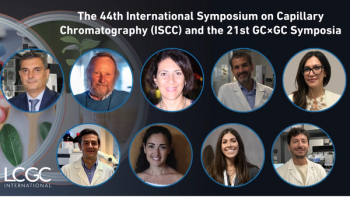
- The Column-01-16-2018
- Volume 14
- Issue 1
Biotage Acquires Horizon Technology
Biotage AB (Uppsala, Sweden) has agreed a deal to purchase all outstanding shares in Horizon Technology Inc. for $18.4 million.
Biotage AB (Uppsala, Sweden) has agreed a deal to purchase all outstanding shares in Horizon Technology Inc. for $18.4 million.
Based in New Hampshire, USA, Horizon Technology is a provider of separation systems and consumables in areas such as water purification, food safety, biofuels, agriculture, pharmaceuticals, and the petrochemical industry. The purchase of Horizon Technology will strengthen Biotage’s position within environmental applications and food safety and allow Biotage to offer a more comprehensive portfolio of products.
“The acquisition of Horizon is in line with our strategy to grow our separation business through expansion into new application areas,” said Torben Jörgensen, CEO of Biotage. “This transaction enables Horizon’s existing products to reach a larger global market through Biotage’s direct sales channels, at the same time as Biotage’s existing products get access to customers in industries where Biotage historically has not been as active.”
“We are excited to partner with Biotage for the next phase of Horizon’s development,” said Robert S. Johnson, co-founder and CEO of Horizon. “This combination will allow Horizon’s product offering to continue to expand its global footprint and open up new opportunities for developing and bringing our innovative products to the market,” he continued.
For more information, please visit:
Articles in this issue
about 8 years ago
New Year’s Resolution(s)about 8 years ago
Combatting Antimicrobial Resistance Through VOC Analysis of RTIsabout 8 years ago
Tackling Chagas Disease With Proteomics and LC–MS/MSabout 8 years ago
The Benefits of AQbDabout 8 years ago
Five Things You May Not Know About GCabout 8 years ago
Vol 14 No 1 The Column January 2018 North American PDFabout 8 years ago
Vol 14 No 1 The Column January 2018 Europe and Asia PDFNewsletter
Join the global community of analytical scientists who trust LCGC for insights on the latest techniques, trends, and expert solutions in chromatography.




